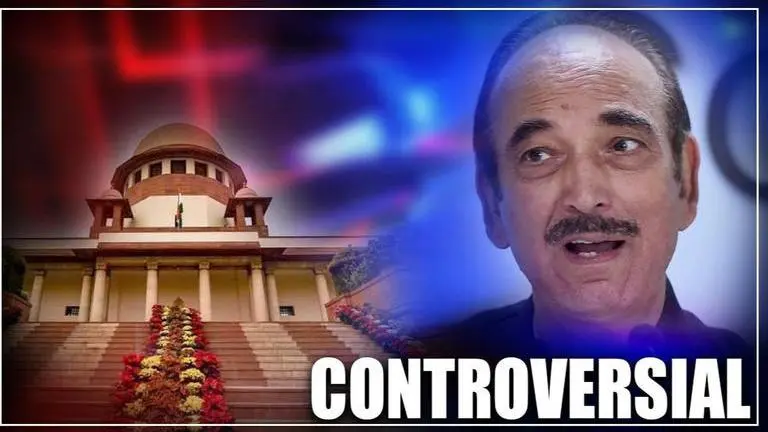Updated 10 January 2020 at 14:04 IST
CONTROVERSIAL: 'This time SC didn't come under pressure,' Congress's Azad on J&K verdict
The Supreme Court on Friday directed the J&K administration to review and place in the public domain all restrictions imposed following Article 370's Abrogation
- India News
- 3 min read

The Supreme Court on Friday directed the Jammu and Kashmir administration to review and place in the public domain all restrictions imposed following the abrogation of Article 370 in August last year. Congress leader Ghulam Nabi Azad, who is one of the petitioners in the case, reacted to the judgment by welcoming it. "We welcome this judgment. This is the first time the Supreme Court has talked about how people of Jammu and Kashmir feel. I would like to thank the Supreme Court for a very historic decision."
'SC didn't come under any pressure'
However, he also added a controversial addendum, stating that "The people from across the country were waiting for it, especially the people of Jammu and Kashmir. The government of India has misled the entire country. Court has also said that any order on the Internet comes under judicial scrutiny which is very important for the government." However, in a controversial statement, the Congress leader without mentioning what he was alluding to said, "this time the Supreme Court was forthright and they didn't come under any pressure."
'Access to the internet a fundamental right'
A three-judge bench headed by Justice N V Ramana asked the J-K administration to restore Internet services in institutions providing essential services like hospitals and educational places. The Apex court also said access to the Internet is a fundamental right under Article 19 of the Constitution. Besides Azad, the apex court had heard the petitions filed by Anuradha Bhasin, Executive Editor of Kashmir Times, and few intervenors questioning restrictions in the valley.
Advertisement
Beginning the verdict by quoting from Charles Dickens' "A Tale of Two Cities" - "It was the best of times, it was the worst of times", Justice Ramana said that Freedom of speech and expression includes the right to internet within Article 19, and Court's "limited concern" is to find a balance regarding security and liberty of people. The Court clearly stated that internet suspension can only be a temporary measure.
Advertisement
Abrogation of Article 370
On August 5, Parliament abrogated Article 370 of Indian Constitution that exempted Jammu and Kashmir from following the Indian Constitution except for Article 1 and itself. Announcing the decision in the Parliament, Home Minister Amit Shah said that it will correct a "historic wrong". Additionally, the Modi government bifurcated the state of Jammu and Kashmir and changed its status to Union Territories - Jammu Kashmir and Ladakh.
(with PTI inputs)
Published By : Jay Pandya
Published On: 10 January 2020 at 14:04 IST
